Iranian Female Skier Defects To Seek Asylum In Germany
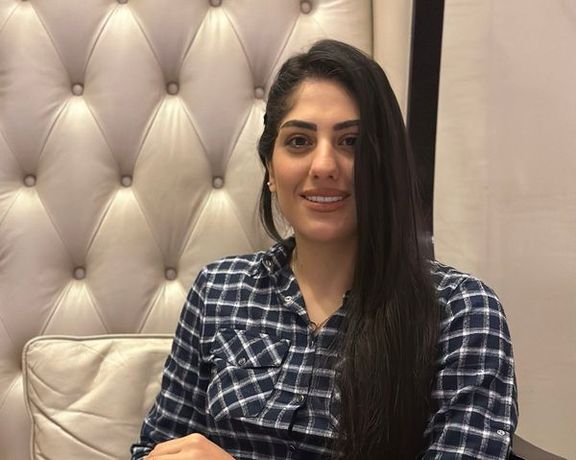
A young Iranian skier, who had traveled to Europe to get prepared for World Championship, has applied for political asylum in Germany.

A young Iranian skier, who had traveled to Europe to get prepared for World Championship, has applied for political asylum in Germany.
Atefeh Ahmadi, Iran's number one skier and the flag bearer of the national teams in the 2022 Beijing Winter Olympics, has told Iran International that she does not intend to participate in these competitions and has applied for asylum in Germany.
The 22-year-old was the only Iranian woman to qualify for the Beijing Games. She is also the winner of five Asian medals and several gold medals in the Turkish Alpine Skiing International Championships.
She is a silver medalist in the Super-G event of the 2018 Asian Alpine Ski Championships.
Her father was a member of the Iranian national cross-country skiing team. He also became the first coach for Atefeh and her sister Hadis.
Around 30 Iranian athletes have defected in recent years, seeking asylum in other countries.
In addition to dress code restrictions, another issue forcing Iranian athletes to defect is Tehran’s policy of not allowing them to compete against Israelis.
Many Iranian athletes have also displayed solidarity with 2022 protest movement at international games despite threats of punishment.
Authorities have made serious threats against athletes and other celebrities to stop them from public displays of solidarity with protesters but to no avail.
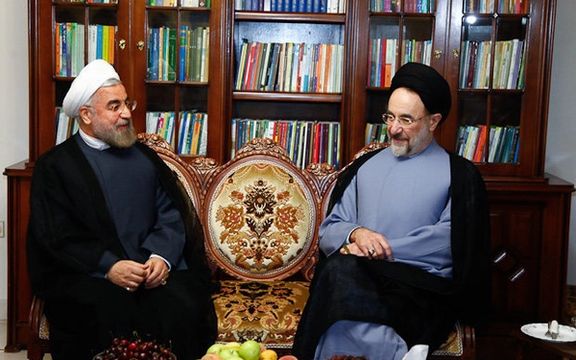
Some ‘reformist’ politicians have warned that excluding critics in next year’s parliamentary elections can only worsen the legitimacy crisis Iran’s regime faces.
Since September, the country has been in turmoil. Protests have somehow slowed down in recent weeks, but there is no sign that the crisis is anywhere near resolution. In fact, many believe that the relative quiet these days is only the calm before a storm.
After protests during which people regularly chanted against clerical rule and its top authority, Supreme Leader Ali Khamenei, and the killing of over 500 protesters within the last four months, elections next year does not appear to be of interest to most Iranians now.
Young protesters who often chant “Reformist-Principlist, this is the end of the story” see little difference between regime hardliners and reformists who want to make changes in the Constitution and laws to make them more democratic within the framework of the Islamic Republic.
In November, some prominent reformists figures met with top officials including Chief Justice Gholam-Hossein Mohseni Ejei, Secretary of the Supreme National Security Council Ali Shamkhani, and Interior Minister Ahmad Vahidi to start a dialogue over the current circumstances and the unrest in the country.
Media reported that they demanded the authorities to stop violence against protesters and open the atmosphere and allow people’s voices to be heard. They were reportedly promised that a few of them could meet with and directly convey their concerns to Khamenei but it appears that their plea has completely been ignored.
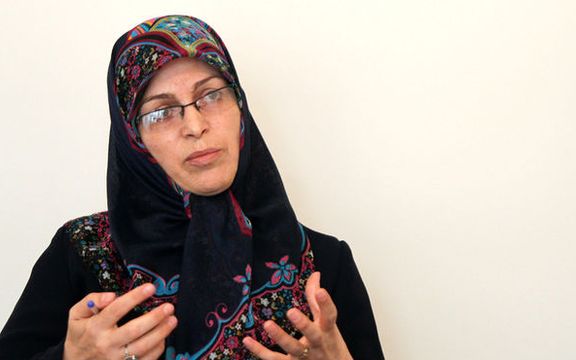
Some reformists have argued that the only way the country can be saved from its dire economic, social and political crisis is through the ballot box, but also said the hardliner Guardian Council which staunchly refuses to allow anyone outside their political circle to run in any elections has completely blocked that path.
However, it is not clear if ‘reformists’ only want their names to appear on ballot papers, or are also in favor of allowing opponents of the regime to be allowed to run.
Even before the current spate of protests, a considerable majority of Iranians were already deeply frustrated with the tightly controlled elections and voting for the very few moderate-reformist candidates who are allowed to run. Even when elected, these officials had no real power in a system dominated by hardliners and conservatives collectively known as Principlists.
The deeply disgruntled electorate very clearly turned its back on ballot boxes in the latest election. Participation rate in the June 2021 presidential elections dropped to an all-time low of 48%. These included 13% void ballots cast by voters who felt they had to vote but did not favor any of the four candidates filtered by the Guardian Council, including a less prominent reformist.
In a note in Etemad newspaper on January 22, former reformist lawmaker Kamaleddin Pourmoazen warned that it is no longer possible to accede to “a hugely ambiguous and untransparent [election] law” that hardliners easily manipulate to limit the nation’s right to determine its destiny.
Referring to the low turnout in the previous parliamentary and presidential elections, he said it is no longer possible to run the country with officials elected with minimal participation of the electorate and ignore the rest.
The totalitarian Paydari Front, which has now spread its dominion to nearly all centers of power, will only make the country more vulnerable against threats, both domestically and internationally, and deepen the rift between the rulers and the ruled, he warned. In the current circumstances the ruling hardliners have no way out of the impasse they have created other than opening up the political atmosphere for real, he argued.
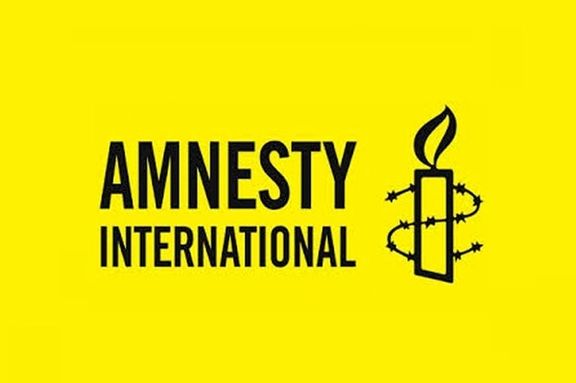
Amnesty International says the Islamic Republic must immediately reverse the convictions and death sentences of three young protesters who were subjected to torture.
The international human rights group said on Friday that the three protesters were tortured by “floggings, electric shocks, being hung upside down and death threats at gunpoint.”
Amnesty has also learned that Revolutionary Guard agents raped one of them and sexually tortured another by placing ice on his testicles for two days.
Arshia Takdastan, 18, Mehdi Mohammadifard, 19, and Javad Rouhi, 31, each received two death sentences in December 2022 for “war against God” and “corruption on earth”.
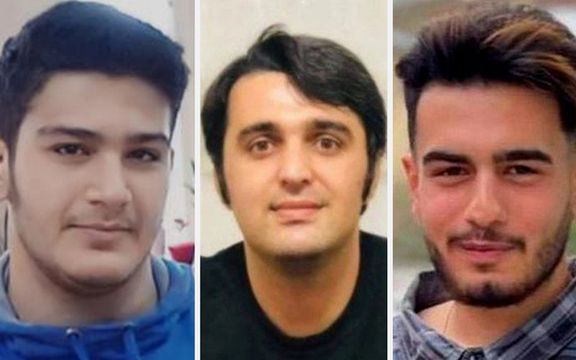
The court says the young men have “incited” arson by throwing headscarves into bonfires during protests in Noshahr, in northern Manzandaran province on September 21.
Javad Rouhi has received the third death sentence as he has confessed under duress that he burned a copy of the Quran during protests.
“The fact that Arshia Takdastan, Mehdi Mohammadifard and Javad Rouhi and their anguished relatives live under the shadow of execution while Revolutionary Guard agents and prosecution officials reasonably suspected of responsibility or complicity in their sexual abuse and other forms of torture enjoy absolute impunity highlights the sheer cruelty and inhumanity of Iran’s judicial system,” noted Diana Eltahawy, Amnesty International’s Deputy Director.
“The Iranian authorities must immediately quash the convictions and death sentences of these young men and drop all charges related to their peaceful participation in protests,” she added.

The US charged three men with conspiring to assassinate a New-York based dissident Iranian activist and journalist, the Justice Department announced Friday.
Prosecutors have charged three members of an Eastern European criminal organization with ties to Iran's government with conspiring to assassinate a journalist and activist who is an American citizen, Attorney General Merrick Garland said on Friday.
Rafat Amirov, Polad Omarov and Khalid Mehdiyev were charged with murder-for-hire and money laundering for their role in the thwarted Tehran-backed plot, the Department of Justice said in a statement.
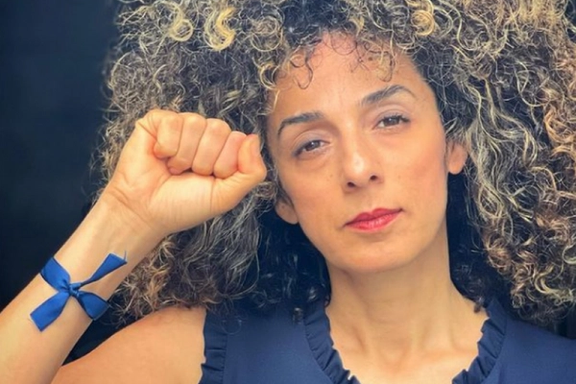
"The victim publicized (the) Iranian government's human rights abuses, discriminatory treatment of women, suppression of democratic participation and expression and use of arbitrary imprisonment, torture and execution," Garland said.
Garland did not name the alleged victim, but Mehdiyev was arrested last year in New York for having a rifle outside the Brooklyn home of journalist Masih Alinejad, a longtime critic of Iran's forced hijab laws who has promoted videos of women violating those laws on social media.
Alinejad has also emerged as a prominent representative of the protest movement that has posed the most serious challenge to the Islamic Republic in its 44-year history.
The female activist was the target of an earlier plot in 2021, when US law enforcement informed her of an Iranian plot to kidnap her and take her to Venezuela for eventual transfer to Iran, where she should have faced certain execution.
"This is the second time in the past two years that this Office and our partners at the FBI have disrupted plots originating from within Iran to kidnap or kill this victim for the ‘crime’ of exercising the right to free speech, to independent political thought, and to advocating for the rights of the oppressed and disenfranchised inside Iran," US Attorney Damian Williams said.
Iran has assassinated or kidnapped hundreds of opponents abroad in its four-decade history. Germany, France, Turkey and Iraq were among countries where Iranian intelligence conducted many deadly operations against opponents.
Amirov was arrested on Thursday and will have a pretrial hearing in federal court in Manhattan later on Friday. Omarov was arrested in the Czech Republic earlier this month.
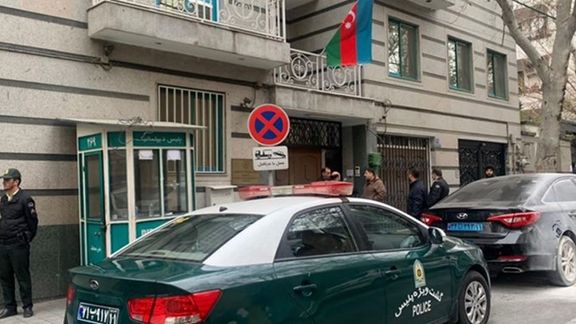
Following an armed attack at the Azerbaijani embassy in Tehran, there are contradictory statement about motives, with Iran personal reasons led to the attack and Azerbaijan hinting at a terrorist act.
Azerbaijan summoned the Iranian ambassador and media in Baku seemed eager to portray the incident as a terror attack, claiming the assailant was a member of the Revolutionary Guard.
Azerbaijani media outlet Trend News Agency reported on Friday that the attacker, who entered the embassy, opened fire and killed the head of the security, was identified as Iranian citizen Yasin Hosseinzadeh.
According to Trend's information, “the perpetrator of the incident, Yasin Hosseinzadeh, is an Iranian citizen, and there are suspicions that he is related to Iran's special services, especially the IRGC,” Trend wrote. It added that Iranian security forces guarding the embassy did not try to stop the attack.
Footage of surveillance cameras released on social media clearly shows that the gunman got out of a car with an AK-47 assault alone and entered the embassy after uttering a few words to the Iranian guard outside. Trend claims that he planned to embark on a killing spree at the embassy before he was neutralized.
Tehran’s police chief said earlier in the day, “This individual today morning entered the Azerbaijani embassy with a gun and opened fire and in this incident one person was killed and two were injured,” adding, “With quick police action the individual was arrested, and an investigation is under way. The person entered the embassy with his two small children. He has indicated that he had personal and family difficulties.” The police claimed he was accompanied by a seven-year-old and a 14-year-old and was looking for his wife who was “hiding” inside the embassy.
However, video footage shows he entered the embassy alone and no children were visible.
Another article in Trend described the terrorist incident as “part of Iran's policy of hostility towards Azerbaijan.” A deputy of the country’s parliament said, "Iranian televisions and radios continuously promote hostility towards Azerbaijan. This once again shows that the Iranian state has a hand in the terrorist incident at the embassy, because it is known that Iran has always been a nest of terrorism and is one of the main countries that support terrorism. The terrorist incident against our embassy proved this once again."
According to the news outlet, “Iranian authorities are trying to avoid a thorough investigation of the attack.”
A couple of hours after the attack, the Islamic Republic’s new police chief Ahmad-Reza Radan announced a new police commander for the capital Tehran: Abas-Ali Mohammadian. A former head of the Law Enforcement Forces in Alborz province, Mohammadian was sanctioned by the EU and UK last year.
Several officials for Azerbaijan and other countries have condemned the attack, urging investigation into the incident and punishment for the perpetrator.
President Ilham Aliyev issued a statement in connection with the terrorist attack, decrying the assault and expressing sympathy with the family of First Lieutenant Orkhan Rizvan oglu Teymurov, who lost his life defending the embassy.
Azerbaijani Foreign Minister Jeyhun Bayramov said, "We strongly condemn the treacherous terrorist attack against the Embassy of Azerbaijan in Iran. We offer our condolences to the family and loved ones of our deceased officer. The perpetrators of the terrorist attack and its customers should be punished as soon as possible,”
Minister of Foreign Affairs of Türkiye Mevlut Cavushoglu also held a phone conversation with his Azerbaijani counterpart, during which he strongly condemned the treacherous terrorist attack.
Following the attack, Italy, Argentina, Belarus, Georgia, Slovakia, and many other countries have been condemning the incident.
Israel's former ambassador to Azerbaijan, Artur Lenk, said this on his Twitter account, "How terrible. I express my deepest condolences to the Ministry of Foreign Affairs of Azerbaijan. Is anyone surprised why this happened in Iran?"
Secretary General of the Council of Europe Marija Pejcinovic Buric said on twitter, "I strongly condemn today’s attack against Azerbaijan’s Embassy in Tehran. Attacks against diplomatic missions are unacceptable. I express my solidarity with Azerbaijan and my condolences for the victims."
Iran’s Foreign Ministry spokesman Nasser Kanaani also condemned the attack, saying, "Upon the order of political and security officials, the issue is being pursued with top priority and sensitivity so that aspects of the incident and the motivation of the attacker become clear."

The United States and Israel concluded their largest-ever joint military drills, with thousands of troops, dozens of aircraft and naval vessels in and around Israel.
The drill, dubbed Juniper Oak 2023 was widely seen as a message to Iran, although US officials said the live-fire exercise did not include mockups of Iranian targets, but large American bombers did take part.
US and Israeli military ties have been expanding in recent months, as both Washington and Jerusalem pledge not to allow the Islamic Republic to acquire nuclear weapons. Negotiations to revive the Iran nuclear deal came to a deadlock last September, as Tehran continues to enrich uranium and is said to have enough fissile material for 3-4 bombs.
IDF chief Herzi Halevi said “Israel and the US share the same values, and the IDF and CENTCOM share the same outlook on the threats facing this region,” adding that the drill “raised our level of planning and implementation of combined operations.”
“Israel is capable of defending itself, but it’s always good to have our greatest partner beside us to learn from one another. This operational partnership strengthens our ability to deal with a wide range of security challenges in the region,” Halevi said in remarks published by the IDF.
“Today the partnership between CENTCOM and the IDF is stronger and continues to grow,” said General Michael Kurilla, the commander of CENTCOM. “Our partnership is a key pillar of our commitment to expanding regional security cooperation,” he added.